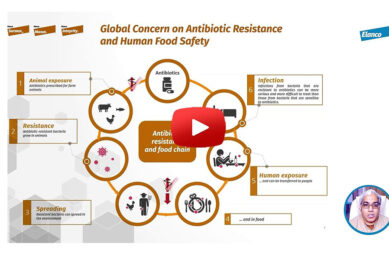FDA issues order prohibiting antimicrobial drug in poultry
The US Food and Drug Administration (FDA) has published a final rule that prohibits the extralabel use of cephalosporin antimicrobial drugs in food-producing animals, including chickens, turkeys, cattle and swine.
According to the FDA, this rule will help protect consumers against antimicrobial-resistant strains of zoonotic foodborne bacterial pathogens.
By law, the FDA may issue a prohibition order if evidence shows that extralabel use of a drug in food-producing animals has caused, or is likely to cause, a public health risk. In this case, the FDA has gathered evidence showing that the extralabel use of cephalosporins in food-producing animals is likely to contribute to the emergence of resistance and compromise human therapies.
By law, the FDA may issue a prohibition order if evidence shows that extralabel use of a drug in food-producing animals has caused, or is likely to cause, a public health risk. In this case, the FDA has gathered evidence showing that the extralabel use of cephalosporins in food-producing animals is likely to contribute to the emergence of resistance and compromise human therapies.
Given the importance of the cephalosporin class of drugs for treating disease in humans, FDA believes that preserving the effectiveness of such drugs is critical. The agency therefore believes that it is necessary to take action to limit the extent to which extralabel use of cephalosporins in food-producing animals may be contributing to the emergence of resistant variants.
The prohibition of extralabel use of cephalosporin antimicrobial drugs in food-producing animals will protect the public health by preserving the effectiveness of cephalosporin-class drugs for the treatment of human infections.
Comments on the rule may be submitted until 2 September, 2008, and the rule will go into effect on 1 October, 2008.
Related links:













